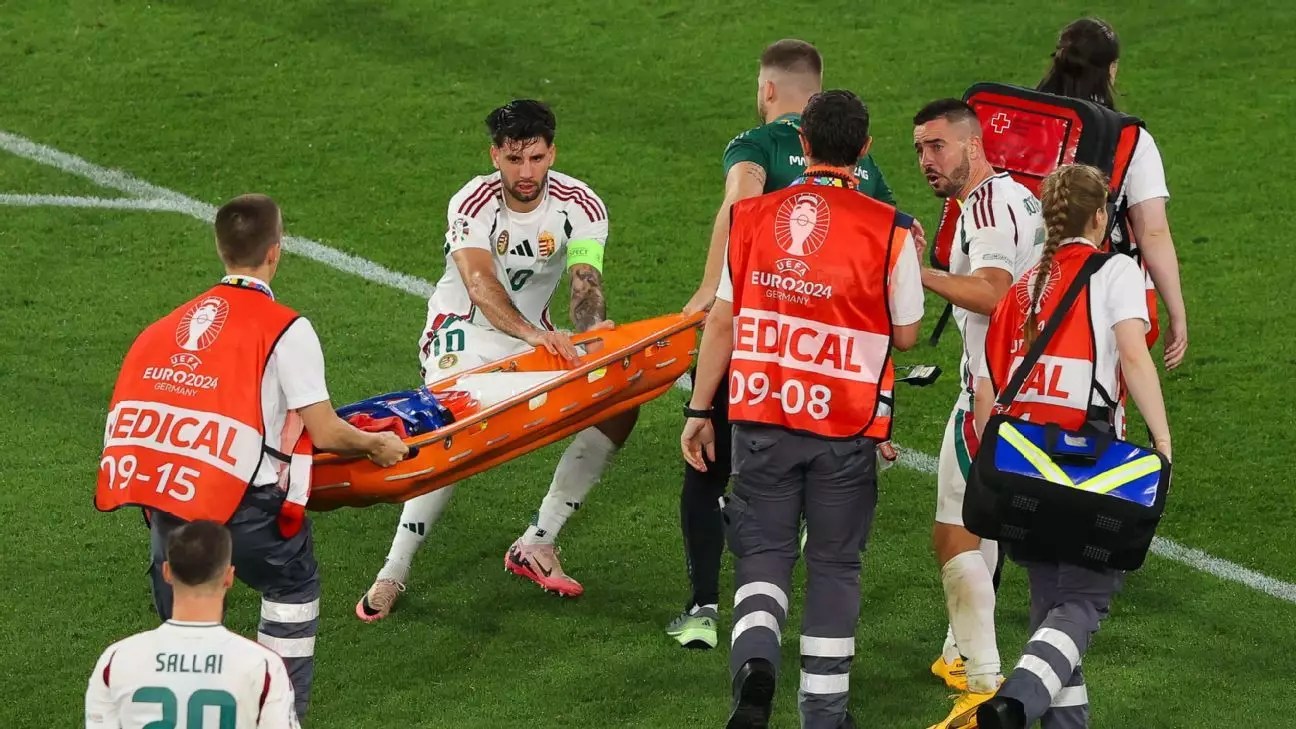During Hungary’s recent Euro 2024 match against Scotland, a troubling incident occurred when Barnabás Varga suffered a nasty collision that left him motionless on the ground. The slow response of the medical staff to his injuries was criticized by Hungary captain Dominik Szoboszlai, who was visibly distressed by the situation. Szoboszlai’s frustration with the delayed medical assistance raises important questions about the protocols in place for handling such emergencies on the football field.
Questionable Protocol and Urgency
Szoboszlai’s comments about the sluggish response of the medical staff point to a potential flaw in the system that prioritizes player safety. The captain’s insistence on the need for quicker intervention highlights the importance of timely medical assistance in potentially life-threatening situations. The urgency with which injured players are attended to can make a crucial difference in their recovery and overall well-being.
The incident involving Varga raises concerns about the preparedness of medical teams during football matches. The delayed response to his injuries could have serious consequences for his health and underscores the need for more efficient protocols to be implemented. Players put their bodies on the line every time they step onto the field, and it is essential that they receive prompt and effective medical attention in case of emergencies.
While UEFA has defended the actions of the medical staff, claiming that there was no delay in treatment, Szoboszlai’s perspective sheds light on the emotional toll of such incidents on players and teams. Coach Marco Rossi’s confirmation of Varga’s consciousness and stable condition does little to address the underlying issue of the timeliness of medical intervention. It is imperative for football associations and team management to reassess their protocols and ensure that player safety is always the top priority.
The incident during the Hungary-Scotland match serves as a stark reminder of the risks and challenges that football players face on the field. Criticisms from players like Dominik Szoboszlai highlight the need for a more rigorous approach to medical emergencies and player safety in football. Going forward, it is essential for authorities, teams, and medical staff to work together to prevent such incidents and prioritize the well-being of those who participate in the beautiful game.


Leave a Reply